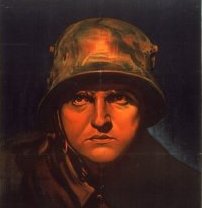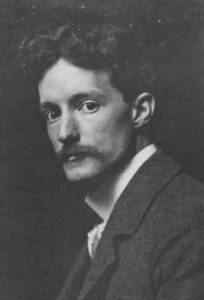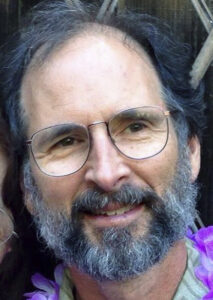 A series of major films about World War I begins in January and continues into May. Showings will be on Sunday afternoons, at the San Francisco Main Library on the dates indicated below. Each film will be introduced by an Institute member, and there will be time for discussion afterwards. The series is co-sponsored by The Institute and by Friends of the San Francisco Public Library. Mark these dates in your calendars!
A series of major films about World War I begins in January and continues into May. Showings will be on Sunday afternoons, at the San Francisco Main Library on the dates indicated below. Each film will be introduced by an Institute member, and there will be time for discussion afterwards. The series is co-sponsored by The Institute and by Friends of the San Francisco Public Library. Mark these dates in your calendars!
January 4, 2015 1:00 p.m.
“All Quiet on the Western Front” (1930; 130 minutes)
Based on the novel of the same name by German author Erich Maria Remarque, “All Quiet on the Western Front” depicts the experiences of a young German recruit whose initial patriotism is severely tested by the harsh realities of trench warfare. Enormously popular in the United States, the film won Best Picture and several other awards in the 1930 Academy Awards. It was never as popular in Europe and would be banned in Nazi Germany.
February 22 1:00 p.m.
“La Grande Illusion” (1937; 117 minutes; subtitles)
Directed by Jean Renoir (son of the artist), “La Grande Illusion” is considered to be one of the great films of all time. It takes us away from trench warfare to a prisoner-of-war camp. Three French prisoners, all officers, are plotting an escape from a German prison camp. One is an aristocrat; the others are a working class Parisian and a wealthy Jew. The German director of the prison camp and the aristocratic French officer find they have much in common including family and friends, as well as a gentlemanly code of conduct.
March 8 1:00 p.m.
“Paths of Glory” (1957; 86 minutes)
The novel on which this film was based was inspired by true events in 1915, when French soldiers who refused to participate in a suicidal charge from the trenches were tried for cowardice. Directed by Stanley Kubrick and starring Kirk Douglas, “Paths of Glory” shows the indifference of commanding officers to the lives of enlisted men—a common theme in writings and films about World War I. Made at the height of our Cold War, the film was a strong anti-war statement. A critic notes that it has “lost none of its power in the years since it was made.”
April 19 12:30 p.m.
“Lawrence of Arabia” (1962; 216 minutes)
Set in the Middle East during World War I, “Lawrence of Arabia” is regarded as a great modern epic. The combat depicted is glamorous: instead of tanks, there are camels; instead of trenches, there are vast expanses of sand. The enigmatic character of T. E. Lawrence is at the center of a story of competing political interests. Arabic nationalists are in revolt against what remains of the Ottoman Empire (an ally of Germany and Austria). Western allies (Britain, France) seek to protect and control the Red Sea and the Suez Canal. After they defeat the Ottomans, they also plan to control what is now Syria, Palestine, Lebanon, and Iraq. Lawrence’s sympathies are with the Arabs, but he is also testing himself, physically and psychologically. The outstanding cast includes Peter O’Toole (as Lawrence), Alec Guinness, Anthony Quinn, and Omar Sharif.
May 17 1 p.m.
“Regeneration” (1997; 114 minutes)
Released in the U.S. as “Behind the Lines”, this film is based on Pat Barker’s novel of the same name. It tells the story of British officers of World War I sent to an asylum in Scotland for emotional troubles, then called “shell shock”, now known as Post Traumatic Stress Disorder. Two of the men meeting there are Wilfred Owen and Siegfried Sassoon, two of England’s most important WW I poets. The themes addressed are the meaning of masculinity, of the responsibility of officers to the men they lead into battle, and how mental disorders should be treated. In this film, as in many others, class differences play an important role.




